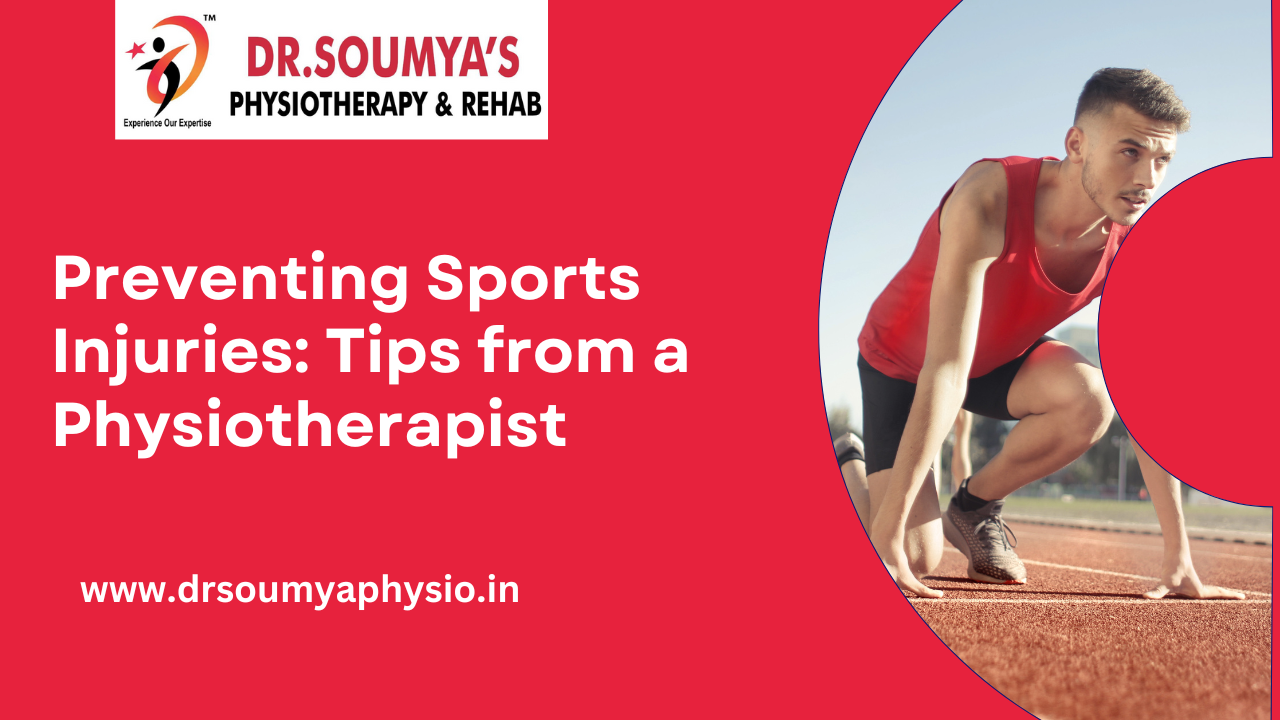
Preventing Sports Injuries: Tips from a Physiotherapist
Playing sports and staying active are great ways to stay healthy and fit. However, with physical activity comes the risk of sports injuries, from sprains and strains to more serious issues like torn ligaments or fractures. Sports injuries can not only sideline you for weeks but can also lead to long-term complications if not handled correctly. The good news is that many sports injuries are preventable. Here, we share tips from a physiotherapist to help you stay injury-free and enjoy your favorite activities safely.
1. Warm-Up Properly
A good warm-up prepares your body for the activity ahead. Start with 5-10 minutes of light aerobic activity, like jogging or jumping jacks, to increase blood flow to your muscles. Follow this with dynamic stretching exercises that mimic the movements you’ll be performing in your sport, such as leg swings for runners or shoulder circles for swimmers. Warming up helps reduce the risk of muscle strains and increases flexibility, allowing you to move safely.
2. Focus on Flexibility and Mobility
Flexibility is key to injury prevention. Tight muscles are more likely to strain or tear during high-intensity movements. Incorporate regular stretching exercises to improve flexibility in the areas that are most used in your sport. For example, athletes involved in running should focus on hamstring and calf stretches, while those involved in throwing sports should work on shoulder mobility.
Tip from Dr. Soumya’s Physiotherapy and Rehab Clinic: Foam rolling is a great way to improve flexibility and release muscle tension, especially before or after a game.
3. Strengthen Key Muscle Groups
Strengthening the muscles used most in your sport will help you perform better and lower your injury risk. A balanced strength-training program should target your core, lower body, and upper body, focusing on muscle groups that may be weaker or less used. Strengthening stabilizing muscles, especially around the joints, reduces stress on tendons and ligaments, making it less likely you’ll sustain an injury.
For example, strengthening the quadriceps and glutes can help prevent knee injuries, while core exercises can improve overall stability and reduce the risk of back injuries.
4. Listen to Your Body
Pain is a signal that something may be wrong. Many athletes try to “push through the pain,” but this can often make things worse. It’s important to distinguish between regular soreness from exercise and sharp or unusual pain. If you feel persistent pain during or after activity, consider it a warning sign and seek advice from a physiotherapist. Addressing small pains early can prevent them from becoming larger injuries that keep you off the field for weeks.
5. Practice Good Technique
Proper form is crucial to prevent sports injuries. Poor technique can place unnecessary stress on your body, especially during repetitive movements like running, jumping, or throwing. Work with a coach or a physiotherapist to ensure your form is correct and make adjustments as needed. Practicing good technique also helps improve your performance and makes movements feel more natural over time.
6. Don’t Skip Recovery Time
Recovery is just as important as training. After an intense workout or a game, your body needs time to heal. Without adequate rest, you’re more likely to experience overuse injuries such as shin splints, tendonitis, or stress fractures. Incorporate rest days into your routine, and make use of active recovery methods like stretching, yoga, or light aerobic exercises on off days.
Tip from a Physiotherapist: Ice, gentle stretching, and massage therapy can be effective ways to aid recovery after intense activities.
7. Invest in Proper Gear
Using the right equipment is essential for staying safe. This could mean wearing supportive shoes if you’re a runner, using a helmet for cycling, or using the right protective padding for contact sports. Equipment that fits well and is appropriate for your sport helps protect you from potential injuries.
8. Stay Hydrated and Eat a Balanced Diet
Nutrition and hydration play a significant role in injury prevention. Dehydration can lead to muscle cramps and fatigue, making injuries more likely. Drinking enough water before, during, and after activity helps keep your muscles working properly. Eating a balanced diet with enough protein, healthy fats, and carbohydrates fuels your body and supports muscle repair and recovery.
When to See a Physiotherapist
If you’ve experienced an injury, it’s important to seek guidance from a physiotherapist to ensure proper recovery. Physiotherapists can assess the injury, provide tailored exercises, and recommend treatments that help speed up recovery and prevent re-injury. At Dr. Soumya’s Physiotherapy and Rehab Clinic, we help athletes of all levels recover safely and return to their sports with confidence.
Final Thoughts on Preventing Sports Injuries
Preventing sports injuries isn’t only about avoiding pain – it’s about enjoying the activities you love for years to come. By following these tips from a physiotherapist, you can reduce your risk of injury and keep performing at your best. Remember, the keys are proper warm-up, strength, good technique, and listening to your body.
If you want professional advice on sports injury prevention or need help recovering from an injury, Dr. Soumya’s Physiotherapy and Rehab Clinic is here to support you with personalized care.
